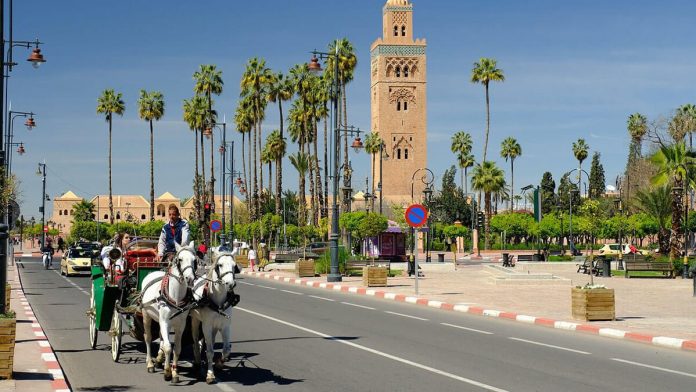Driving in Morocco or renting a car is a good idea to discover this stunning Country by yourself. But there are many things you must know before planning a Road trip to Morocco.
INTERNATIONAL DRIVER’S LICENSE IN MOROCCO!
Motorists planning to take their own vehicle into Morocco will need a full driver’s license “no need an International Driver’s License”! Driving in Morocco, you must have an international motor insurance certificate and Green Card, and a vehicle registration document. An official nationality plate must be displayed near the rear number plate, and headlamp beams must be adjusted for driving on the right. Full details are available from your insurance company.
DRIVING IN MOROCCO CONDITIONS INSIDE THE CITIES.
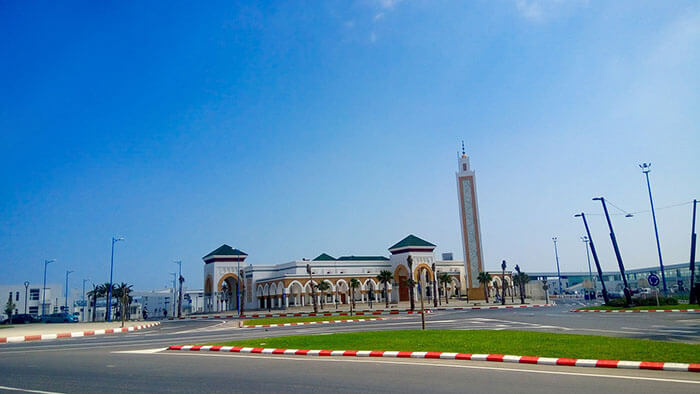
In Morocco, drive on the right side, and pass on the left. Speed limits are 120km/h (72mph) on highways, and 60km/h (37 mph) in towns and cities. Traffic joining a road from the right has priority, unless signs or markings indicate otherwise. Most importantly, this means that cars already on a roundabout must give way to those joining it. One local quirk you should be prepared for is that drivers making a left turn on a two-lane road often move over to the wrong side of the road before turning; this can be rather disconcerting if you are travelling in the opposite direction.
Must Read: 15 Best Cities to Visit in Morocco
DRIVING IN MOROCCO CONDITIONS OUTSIDE THE CITIES.
Driving conditions outside the cities are generally safe on the main routes in Morocco, with long, straight stretches and little traffic. Four-lane motorways (autoroutes) link Casablanca, Rabat, Kenitra, Tangier, Meknès, Fez, Oujda, Marrakech and Agadir.
Driving in minor roads in Morocco are often wide enough for one vehicle only, and you will have to move on to the gravel shoulder to pass oncoming traffic. You should look out for pedestrians, donkey carts and mopeds, especially at night.
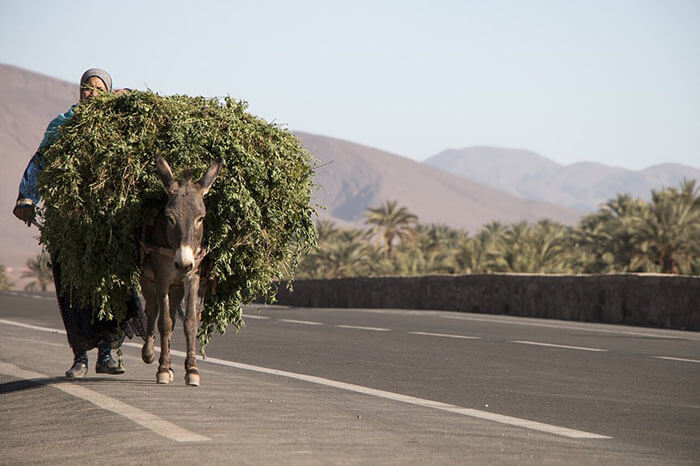
IS IT SAFE TO DRIVE IN MOROCCO?
If you plan to wander off the main routes, it is safe and easy to drive in Morocco inasmuch as you should pay attention and drive carefully in big cities and rural areas, and a reliable road map is essential.
The use of seat belts in both front and back seats is obligatory; fines for non-compliance are stiff. A red warning triangle must be carried. Motorcycle riders and their passengers must wear crash helmets. Note that the minimum legal age for driving in Morocco is 18.
Many minor roads are unsurfaced, and should not be attempted without a four-wheel-drive vehicle and a local guide. Remember, too, that many of the roads across the Atlas Mountains are high enough to be blocked by snow in the winter. Then the best time to visit Morocco by car is in spring and summer and early in autumn.
MORE TO READ: Top guide for the blue city of Morocco “Chefchaouen”
DRIVING IN MOROCCO: ROAD SIGNS
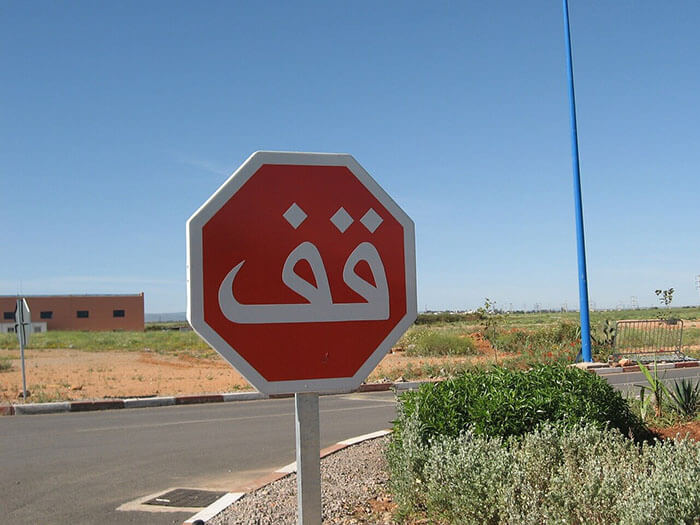
Morocco is located facing Europe across Gibraltar, and Most road signs use the standard European pictographs, and directional signs are given in both French and Arabic. Here is a list of the more common written signs:
Stop Arrêt
Caution Attention
Caution – road works Attention Travaux
Give way, yield Cédez
Road liable to flood Crue
No parking Défense de stationner
Diversion, detour Déviation
Slow Lentement
Keep right Serrera droite
Bends curves Virages
PETROL STATIONS.
Petrol (essence) and diesel (gas-oil) are easily obtained. There are plenty of service stations in and around towns, but they can be few and far between in the south. So always fill up at the beginning of the day when you are driving in the more remote areas in Morocco. Most cars take premium grade (super); lead-free petrol (sans plomb) is available only in the larger towns.
PARKING.
In the centre of most large towns and cities, parking is controlled by gardiens! Attendants in blue coats, often with a brass badge, who will guide you into a space, perhaps clean your windscreen, and claim a small fee. Two or tree dirhams is normal; there is no set charge. Gardiens are licensed by the local town council, so don’t try to avoid paying; they are not hustlers.
TRAFFIC POLICE.
Motorcycle police patrol the main highways, and occasionally set up checkpoints. You may be asked to show your passport and registration or car hire documents, but once the officer realizes you are a tourist and everything is ok, he will usually just wave you on.
BREAKDOWN.
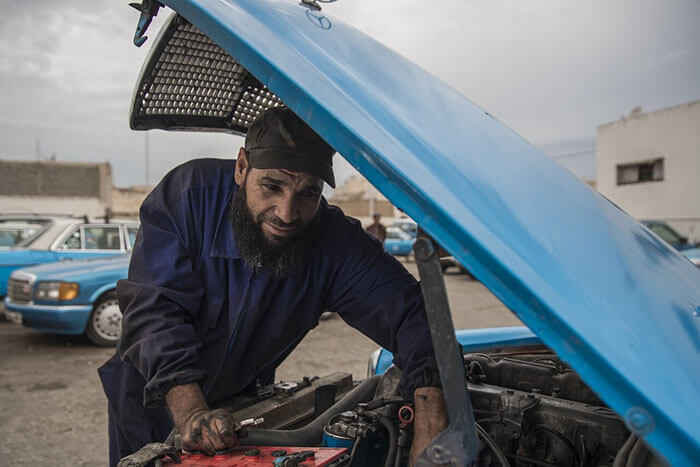
When you are driving on Morocco, and in most towns there should be no problem finding a mechanic to carry out minor repairs. However, if you break down in the more remote parts of the country you will probably have to rely on assistance from passing cars, or carry out repairs yourself. If you have a rental car, follow the procedure laid down by the rental company, and check with them before setting off.
CAR RENTAL IN MOROCCO (location de voitures)
CAR RENTAL IN MOROCCO IS A GOOD IDEA!
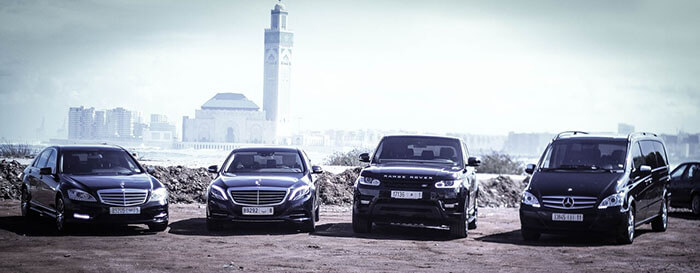
Although expensive by European and North American standards! Renting a car in Morocco, is a good idea of discovering the Moroccan landscape. A car gives you the freedom to travel at your own pace, and driving to places inaccessible in Morocco by public transport. There are numerous car hire firms in the major cities and tourist resorts; local firms often charge a great deal less than the big international chains but rates vary considerably! And you should shop around for the lowest price. Always be wary of any agency recommended by a ‘guide’; he is bound to be on commission.
HOW MUCH DOES IT COST TO RENT A CAR IN MOROCCO?
The best rates are usually to be had by booking and paying for your car before you leave home, either directly through an international rental company or as part of a fly-drive package deal. Check that the quoted rate includes Collision Damage Waiver, unlimited mileage, and tax (currently 19% in Morocco), as these can considerably increase the cost.
Car rental In morocco costs around $ 22 to $ 50 per day, depending on the brand and type of car. I recommend going to several Car Hire Companies to get an idea of the average price, especially in the high season.
DRIVING A CAR RENTAL IN MOROCCO
In Morocco You must be over 21 to rent a car, and you will need a full driver’s license (EU, UK, US… model) which you must have held for a minimum of 12 months, your passport, and a major credit card – cash deposits are prohibitively large.
Have you traveled to Morocco? Do you want more tips for your road trip? Please feel free to leave me a message in the comments below!

